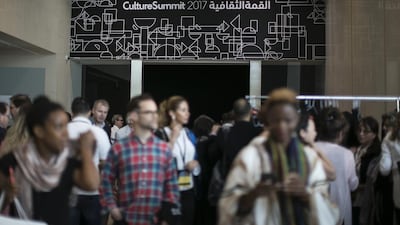The Culture Summit 2017 concluded on Thursday after succeeding in bringing together leaders from the fields of government, arts and media to discuss the role that culture can play in tackling some of the pressing challenges of our time, such as intolerance, and how new technologies are influencing global cultural interaction and affecting societies, economies, politics and every other dimension of our lives.
These discussions are very critical today. We live in a world, as Zaki Anwar Nusseibeh, Assistant Minister of Foreign Affairs and cultural adviser at the Ministry of Presidential Affairs, said, where terrorists are targeting the narrative of man's civilisation and tearing apart the heritage of humanity. These divisive strategies won't work if we make collective efforts to preserve and strengthen culture and use it as a weapon to push back.
But the definition of culture is so broad. In a general sense, it’s “that complex whole which includes knowledge, belief, art, law, morals, custom, and any other capabilities and habits acquired by man as a member of society,” as anthropologist Edward Tylor explained it in the first highly influential definition. But it can also be more specific to cultural expression in forms of arts and architecture, in other words, the physical manifestation of cultural values. In the UAE, it is often tied to the story of the country itself.
The UAE has been increasingly supporting reading and nurturing artists of all kinds. Meanwhile, it's recognising the fundamental role of education in the preservation and development of culture, as the recent educational reforms suggest. This is necessary because culture is crucial for both personal enrichment and strengthening the social fabric of the country.
So the Culture Summit is welcome, but it is only part of the fabric of such events. Equally important is to have many vibrant ways to experience culture. Galleries Week at Abu Dhabi’s Warehouse 421 – the capital’s answer to Dubai’s flourishing Al Serkal Avenue – is something special in this regard. By bringing culture close to people, it allows them to really engage in its messages.

